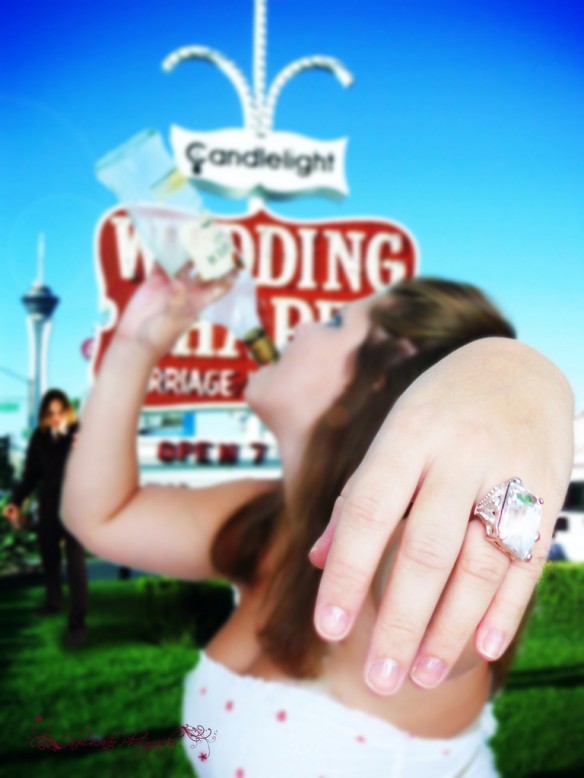If one accepts the postulate that popular “love songs” reflect the attitudes of target audience toward relationship, then we can learn much in this area from Bruno Mars’ “Marry You”. Mars, in mid-20’s himself, is a Grammy-winning song-writer and performer who has written hit singles for Cee Lo Green (“Forget You!”), K’naan (“Waving Flag”), Flo Rida (featuring Ke$ha; “Right Round”), Travis McCoy (“Billionaire”), and B.o.B. (“Nothin’ on You”). Mars enjoyed success on his debut album “Doo-Wops & Hooligans”; two singles “Just The Way You Are” and “Grenade” topped charts and the album received positive reviews from music critics.
The song “Marry You” is from the debut album. The cast of popular TV show Glee performed a cover for the song in the show, as the wedding march for the wedding ceremony of two secondary characters. At a quick “glance” (or whatever the audio equivalent of glance is), “Marry You” fits in the genre well as a love song that folks play at wedding: it is bright and cheerful, has a rhythm that encourages dancing and nice (perhaps even addictive) melodies that is consistent with other works from Mars, and creates an atmosphere of an outdoor evening party in the summer. However, upon closer inspection, “Marry You” is a significant departure from traditional love song, and one that does not necessary inspire feelings of commitment, responsibility, or even love and care–qualities that one might look for in a marriage.
“Is it the look in your eyes
Or is it this dancing juice?
Who cares, baby
I think I wanna marry you”
Today’s social activities and relationships between people are characterized by a focus on the moment’s experience and the resultant fluidity as the causes and conditions of coming together dissolve as quickly as they converge.
Today’s social activities and relationships between people are characterized by a focus on the moment’s experience and the resultant fluidity as the causes and conditions of coming together dissolve as quickly as they converge. In this song, some sort of chemistry is developing and feelings are stirred in two young people. We are not privy to the history between the two–they can be lovers, friends, or even strangers–and perhaps this insignificance of history is deliberate. On this occasion, the beautiful night, a certain look in the eyes, and the presence of alcohol (dancing juice is another name for alcohol in modern youth parlance; some even suggested that Mars coined the term here in this song, and for him it refers to ginger ale mixed with rum–his favorite drink) sufficiently form the basis of this relationship going forward.
“It’s a beautiful night
We’re looking for something dumb to do
Hey baby
I think I wanna marry you”
How can one build on this moment, a mixture of spontaneity and chemistry that’s perhaps alcohol induced? How does one up the intensity of experience? Sex is perhaps the cliche way to go, but that’s quickly going out of fashion as something that generates any intensity of experience and significance in meaning. The young man proposes the seemingly conventional but counter-intuitively more substantial alternative–marriage–as the way to amp this evening’s experience.
“Well, I know this little chapel
On the boulevard we can go
No one will know
Oh, come on girlWho cares if we’re trashed
Got a pocket full of cash we can blow
Shots of Patron
And it’s on, girlI’ll go get a ring
Let the choir bells sing like
Ooh, so what ya wanna do?
Let’s just run, girl”
What’s a wedding without a ceremony and a ring–symbols of holy matrimony? With enough money, one can find a ring and a chapel good enough for the occasion, along with–you guess it–more alcohol (Patron is an expensive brand of tequila). Perhaps the formalities are not so important, as long as sincere feelings and a sense of commitment are mutual, after all, what’s the point of marriage without a promise to care and relate to each other for the long haul?
“If we wake up and you
Wanna break up, that’s cool
No, I won’t blame you
It was fun, girl”
…every moment many possibilities seemingly await and bid for my attention and my participation, why attach unnecessarily additional expectation, significance, and meaning in this moment’s connection with this particular person?
Perhaps one cannot expect too much if they are only “looking for something dumb to do”. Why not? With aid of smart mobile devices and social networking services, every moment many possibilities seemingly await and bid for my attention and my participation, why attach unnecessarily additional expectation, significance, and meaning in this moment’s connection with this particular person? Why put on rein on my freedom to choose to do something “dumb”, if that’s what I feel like at the moment?
What I feel like at the moment is conditioned by what I have done –sprouting of seeds that are planted in the past–and I following that inclination is lack of freedom from long-accumulated habits of mind. In fact, by “looking for something dumb to do” now, and actually follow through, I am developing a habit of looking for and doing something “dumb”. Each moment of choice and action cannot be considered in isolation, but are strung together by the planting and coming into fruition of karmic seeds, with cetana–loosely translated as intention–as the apparatus of change. Whether we are conscious or not of our intentions, seeds are planted and our circumstances and conditions will be mold by their sprouting.
By the way, for a cheerful love song, this one has no mention of the word “love”. Coincidence?

